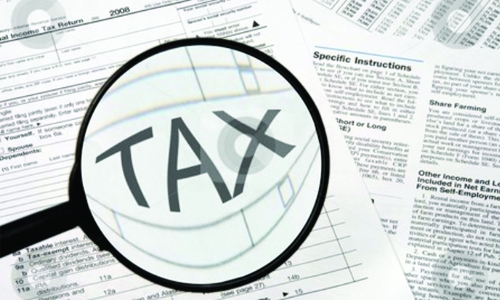VAT may increase business costs in GCC
Low oil prices and employment are set to impact the GCC economy in 2016 while the impending introduction of value added tax, or VAT, in the region is poised to intensify the cost of doing business, a survey among investment professionals revealed on Sunday.
According to key findings of the CFA Institute GCC Societies Survey, the majority of respondents (61 per cent) believe that the possible introduction of a VAT to GCC countries would increase the cost of doing business and compliance for firms. This will discourage foreign direct investment, according to 17 per cent of respondents.
The CFA Institute, the global association of investment professionals, has launched the results of its first CFA Institute GCC Societies Survey, based on feedback from more than 200 GCC-based CFA charter holders and members from Bahrain, Kuwait and the UAE. The survey highlights economic, investment and employment trends and challenges in the GCC region.
Amer Khansaheb, president of CFA Society Emirates, said the survey provides useful insights into the opinions and expectations of some of the most senior finance and investment professionals working in the GCC region.
The economic outlook for 2016 seems uncertain, with the vast majority of respondents [81 per cent] expect low oil prices to impact the GCC economy. Despite this uncertainty, the possibility of the introduction of VAT and human resources are dominant themes.
The International Monetary Fund and other international bodies have been advising the UAE and the rest of the GCC countries to introduce taxation among several options for the governments to strengthen their revenue base in order to minimise dependence on the fluctuating global oil price.
The "low" rate of VAT as advised by the IMF is being generally seen as at or around five per cent.
While the IMF maintains that the UAE economy is resilient to low oil prices and sluggish global growth thanks to its fiscal buffers and safe-haven status, the agency is suggesting the government to undertake additional reforms to boost its finances.
In the CFA survey, views on employment opportunities for finance professionals in the GCC market are fragmented. While 41 per cent of respondents expect employment opportunities to decrease, 37 per cent of respondents expect opportunities to remain the same.
"As the economy's potential cools, the majority of respondents express concern about the increased cost of conducting business with the possible introduction of VAT, as well as companies' ability to attract, retain and maintain the cost of quality talent," said Khansaheb.
Last week, Brent, the gauge for prices in the North Sea among other international markets, settled below $40 a barrel for the first time since 2009 - and it edged lower again to $39.60 a barrel. Its US counterpart, West Texas Intermediate, fell below $37 and was also falling. The latest fall was caused by the Opec revealing another increase in production across its 13 member countries in November. According to 10 per cent of respondents in the CFA survey, regional conflict is expected to be the second factor, followed by the slowdown in the Chinese economy, according to six per cent of respondents.
Real estate, hospitality and construction will drive investment over the next two years, according to nearly half (48 per cent) of respondents, followed by diversified industrial products (12 per cent) and transportation and logistics (12 per cent). More than half of respondents (51 per cent) feel that levels of trust from regulators and financial institutions in the investment industry are higher than during the financial crisis of 2008-09. Levels of trust have remained the same, according to 34 per cent of respondents, and 15 per cent of respondents feel that they are lower than before the crisis.
Shariah finance will continue to see development in the region, according to more than half of respondents (64 per cent).
Related Posts

